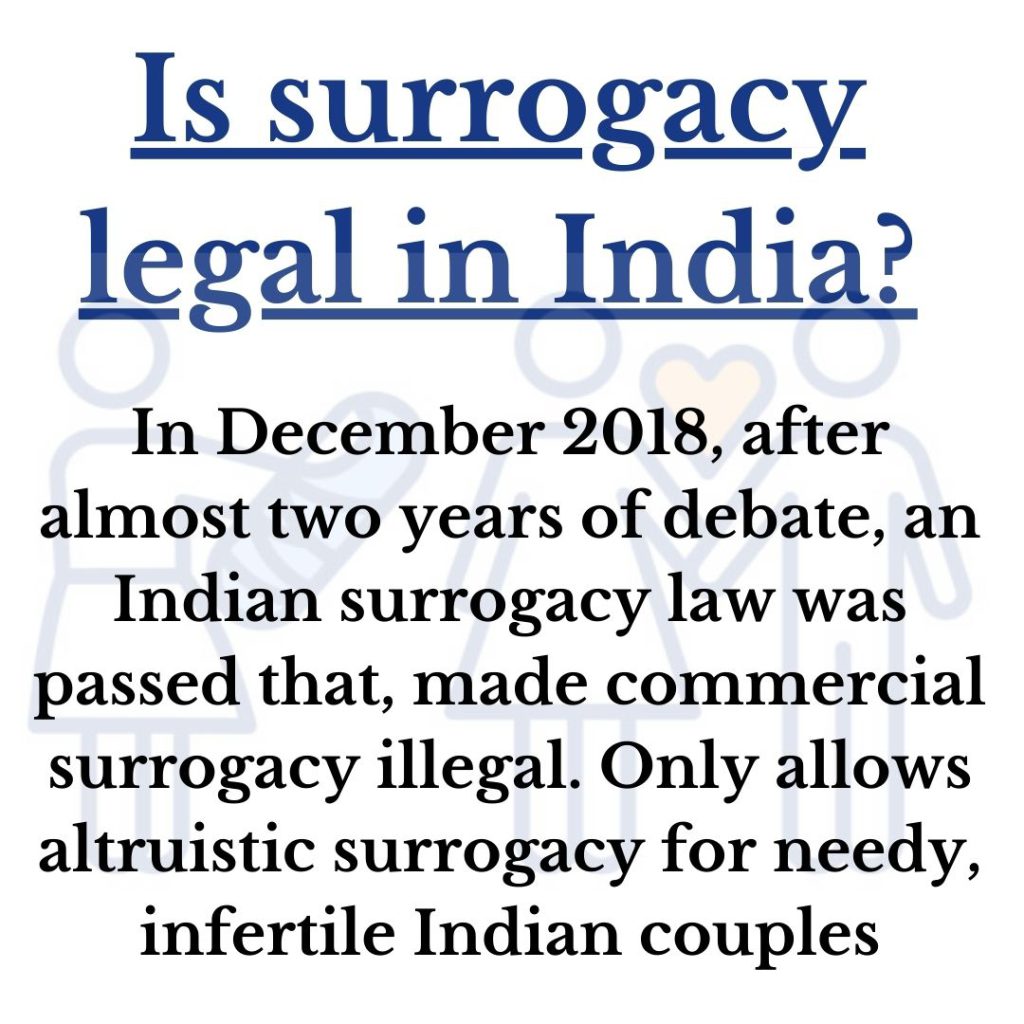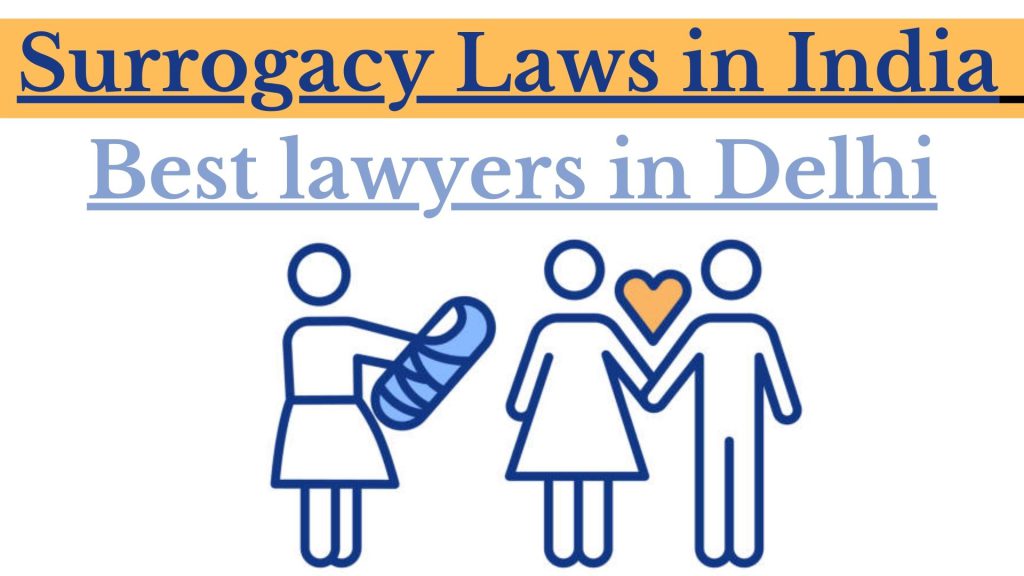Introduction
The feeling of being parents can’t be expressed in words. It is one of the biggest days for the couple when they see those little two pink lines on the test kit. But not all couples get to feel that happiness.
Not all couples are able to conceive naturally but now the technology has moved to such an advanced level that childless couples need to worry no more. One such method is surrogacy. In this article, we are going to discuss surrogacy meaning, surrogacy laws in India, and more about surrogacy.
Keep Reading!
Surrogacy Meaning | Surrogacy laws in India

Surrogacy is a term used when a woman carries and gives birth to a baby for another woman. The act of surrogacy can be gratuitous, voluntary, or paid. Some people are still judgmental of this term however, it is absolutely legal for a couple to opt for surrogacy in order to bring their child into this world.
Is surrogacy legal in India?

In December 2018, after almost two years of debate, an Indian surrogacy law was passed that:
- Made commercial surrogacy illegal
- Only allows altruistic surrogacy for needy, infertile Indian couples
- Requires intended parents to be married for five years and have a doctor’s certificate of their infertility
- Restricts women to being surrogates only once, and only if they are a close relative of the intended parents, are married, and have a biological child
- Bans single parents, homosexuals, and live-in couples from surrogacy
What are the guidelines given by the Indian Council of Medical Research (ICMR)?
The Indian Council of Medical Research (ICMR) has set national guidelines to regulate surrogacy. It states that the surrogate mothers must sign a “contract” with the childless couple. However, no laws regulate what will happen if the contract is violated.
- The surrogacy arrangement is governed by a contract between the intended parents and the surrogate mother. The contract will contain the following things
- Consent of surrogate mother to bear the child
- Agreement of the husband and family members of a surrogate mother
- Medical Procedures for artificial insemination
- Reimbursement of all the expenses for carrying the child to the full term.
- Willingness to hand over the child to the commissioning parents after the birth.
- A surrogacy arrangement should be such that it should provide financial support for the surrogate child in the event of death of the commissioning couple or individual before the delivery of the child, or divorce between the intended parents and subsequent willingness of none to take the delivery of the child.
- The cases of abortions should only be governed by the medical termination of pregnancy act 1971.
- Gender-selective surrogacy should be prohibited.
- One of the intended parents must be a donor as well because it is believed that the bond of love and affection with a child comes from the biological relationship.
- The legislation should recognize a surrogate child as the legitimate child of the commissioning parents without any need for adoption or even a declaration of guardianship.
- A surrogacy contract should take care of life insurance cover for a surrogate mother.
- The right to privacy of a surrogate mother should get protected.
- A surrogacy contract should take care of life insurance cover for the surrogate mother.
Guidelines for foreign nationals
- The foreign couple should be duly married and the marriage should have sustained at least for two years at the time of commissioning of surrogacy.
- They should enclose a letter from the Embassy of the foreign country in India or the Foreign Ministry of the country with the application stating clearly that:
- the country recognizes surrogacy and
- the child/children to be born to the commissioning couple through the Indian surrogate mother will be permitted entry into their country as a biological child/children of the couple commissioning surrogacy.
- The couple should furnish an undertaking that they would take care of the child/children born through surrogacy.
- The treatment should be done only at one of the registered ART Clinics recognized by ICMR.
- The couple should produce a duly notarized agreement between the applicant couple and the prospective Indian surrogate mother.
- The FRRO/FRO concerned may grant exit to the child/children born through the commissioning of surrogacy, subject to the following:-
- The OCI/PIO Cardholder had obtained the requisite prior permission from the FRRO/FRO concerned for commissioning surrogacy as mentioned above.
- The OCI/PIO Cardholder is carrying a certificate from the ART clinic concerned regarding the fact that the child/children have been duly taken custody of by the OCI/PIO Cardholder and the liabilities towards the Indian surrogate mother have been fully discharged as per the Agreement.
- A copy of the Birth Certificate (s) of the surrogate child/children, along with photocopies of the passport and OCI/PIO card of the OCI/PIO cardholder, will have to be submitted by the OCI/PIO cardholder to the FRRO/FRO for the record.
- The wife of a foreign national or OCI/PIO cardholder (who does not have an OCI/PIO card), who is not involved with the treatment in any way, may not require a specific Medical Visa.
What is the new update on Foreign nationals?
The Indian government had recently issued new rules barring foreign gay couples and single people from using surrogate mothers to become parents. This has also invited immense criticism from gay rights advocates and fertility clinics.
Need of a lawyer
A lawyer experienced in the field of law relating to medical negligence is essential to further your interests in the quest for justice. A lawyer can best advise you on the merits of your case and the best plan of action to adopt moving forward. If you need clarity on surrogacy laws or have been wronged, you must approach a lawyer.
Conclusion
I hope this article would have helped you in some or the other way. Do not forget to share this article with your friends and with those who are in need.
For a consultation with the Top lawyers of Delhi, Reach out to us Here
